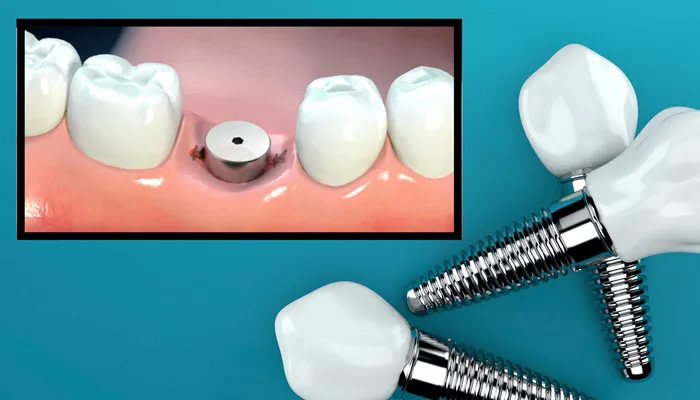Dental implants are a popular solution for replacing missing teeth, providing both functional and aesthetic benefits.
However, the recovery period following dental implant surgery is critical to ensure the success of the procedure.
Understanding what to expect during this time can help patients manage their recovery effectively. This article will provide a detailed overview of the recovery process, including timelines, stages of healing, and tips for a smooth recovery.
The Importance of Recovery
The recovery period after dental implant surgery is essential for several reasons:
Osseointegration: This is the process by which the dental implant fuses with the jawbone. Successful osseointegration is crucial for the stability and longevity of the implant.
Tissue Healing: The surrounding gum tissue needs to heal properly to support the implant and maintain oral health.
Prevention of Complications: Adequate recovery time helps prevent complications such as infection or implant failure.
General Timeline for Recovery
The recovery period for dental implants typically spans 3 to 6 months, but this can vary based on several factors, including:
The number of implants placed
The condition of the jawbone prior to surgery
Whether any additional procedures (like bone grafting) were performed
Individual health factors, such as age and overall health
Initial Recovery Phase (Days 1-3)
First 24 Hours:
The first day post-surgery is crucial. Patients should rest and avoid strenuous activities.
Ice packs can be applied to reduce swelling.
Pain medication prescribed by the dentist should be taken as needed.
Days 2-3:
Patients may experience mild discomfort and swelling, which should gradually decrease.
A soft food diet is recommended; avoid hot, spicy, or hard foods that could irritate the surgical site.
Gentle saltwater rinses can help keep the area clean without causing irritation.
Soft Tissue Healing (Days 4-14)
During this phase, which lasts about two weeks:
Swelling and Discomfort: Swelling may peak around day three and then begin to subside. Pain should decrease significantly during this time.
Dietary Adjustments: Continue with soft foods and gradually introduce firmer foods as tolerated.
Oral Hygiene: Maintain good oral hygiene by brushing gently around the implant site and using prescribed mouth rinses.
Bone Healing Phase (Weeks 3-6)
This phase involves osseointegration, where the implant fuses with the jawbone:
Timeline: This process generally takes about 3 to 6 months but can vary based on individual healing rates.
Activity Level: Most patients can return to normal activities within a few weeks, but high-impact activities should be avoided until cleared by a dentist.
Detailed Recovery Stages
To better understand the recovery process, let’s break it down into specific stages:
| Stage | Duration | Key Activities |
| Initial Recovery | Days 1-3 | Rest, ice application, soft diet, pain management |
| Soft Tissue Healing | Days 4-14 | Gradual return to normal diet, maintain oral hygiene |
| Bone Healing | Weeks 3-6 | Monitor healing progress, possible follow-up appointments |
| Final Integration | Months 3-6 | Continued monitoring; final restoration placement |
Factors Affecting Recovery Time
Several factors can influence how quickly a patient recovers from dental implant surgery:
Health Status: Patients with underlying health issues (e.g., diabetes) may experience longer recovery times.
Age: Younger individuals often heal faster than older adults due to better regenerative capabilities.
Smoking: Smoking can significantly impede healing and increase the risk of complications.
Oral Hygiene Practices: Maintaining excellent oral hygiene can promote faster healing and reduce infection risks.
Tips for A Smooth Recovery
To enhance recovery after dental implant surgery, consider these recommendations:
Follow Post-operative Instructions: Adhere strictly to your dentist’s guidelines regarding care and medications.
Rest Adequately: Allow your body ample time to heal by avoiding strenuous activities during the initial recovery phase.
Maintain a Soft Diet: Stick to soft foods that do not require extensive chewing for at least one week post-surgery.
Stay Hydrated: Drink plenty of fluids to help flush out any bacteria and keep your body hydrated.
Avoid Smoking and Alcohol: Both substances can hinder healing processes and should be avoided during recovery.
Use Cold Compresses: Apply cold packs to manage swelling during the first few days after surgery.
Recognizing Complications
While most recoveries are straightforward, it’s essential to be aware of potential complications:
Infection Signs: Increased swelling, redness, or discharge from the surgical site may indicate an infection that requires prompt attention.
Persistent Pain: While some discomfort is normal, worsening pain could signal issues such as implant failure or nerve damage.
Conclusion
The recovery period after dental implant surgery is a vital part of ensuring long-term success. By understanding what to expect during each stage of healing and following recommended care practices, patients can facilitate a smoother recovery process. Always consult with your dental professional if you have concerns or experience unusual symptoms during your recovery journey.
Related topics:

